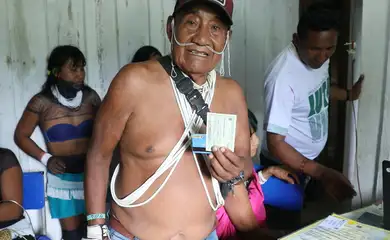Abstentions increase in runoff of Brazil’s municipal elections

Voters across 51 cities—including 15 capitals—returned to the polls Sunday (Oct. 27) to choose the mayors who will govern their municipalities from January 1, 2025. Almost 34 million voters were eligible to take part in the election.

Abstention increased from 21.68 percent in the first round to 29.26 percent in the second, prompting the electoral court authorities to look into the causes of absences and try to reduce non-attendance in the next elections, in 2026.
The survey was announced by Judge Cármen Lúcia, head of Brazil’s Superior Electoral Court, at a press conference on the second round of the elections.
“There was an increase in abstention in the second round. We’ve had climatic cases, other problems. We’re going to check and see what we can improve. We’ll have to check in each place and work with the data,” she declared.
Abstention usually tends to rise between the first and second rounds, mainly due to voters who are unhappy with both candidates. The 2024 elections recorded the second highest number of absentees in history, second only to 2020, at the height of the COVID-19 pandemic, when 23.2 percent failed to vote in the first round, compared to 29.5 percent in the second round.
The judge warned that the court will need to deal locally with the variables that influence abstention. “There were municipalities with 16 percent abstention, and there were municipalities with 30 percent,” she pointed out.
Compulsory voting
In Brazil, voting is compulsory for people over the age of 18. It is optional for illiterate people, people over 70, and young aged 16–17.
Under Brazilian law, anyone who is required to vote but fails to go to the polls has an outstanding obligation with the electoral justice system. Failure to vote for three elections in a row results in the cancellation of the voter’s registration card, which can prevent citizens from having a passport issued, for example.






